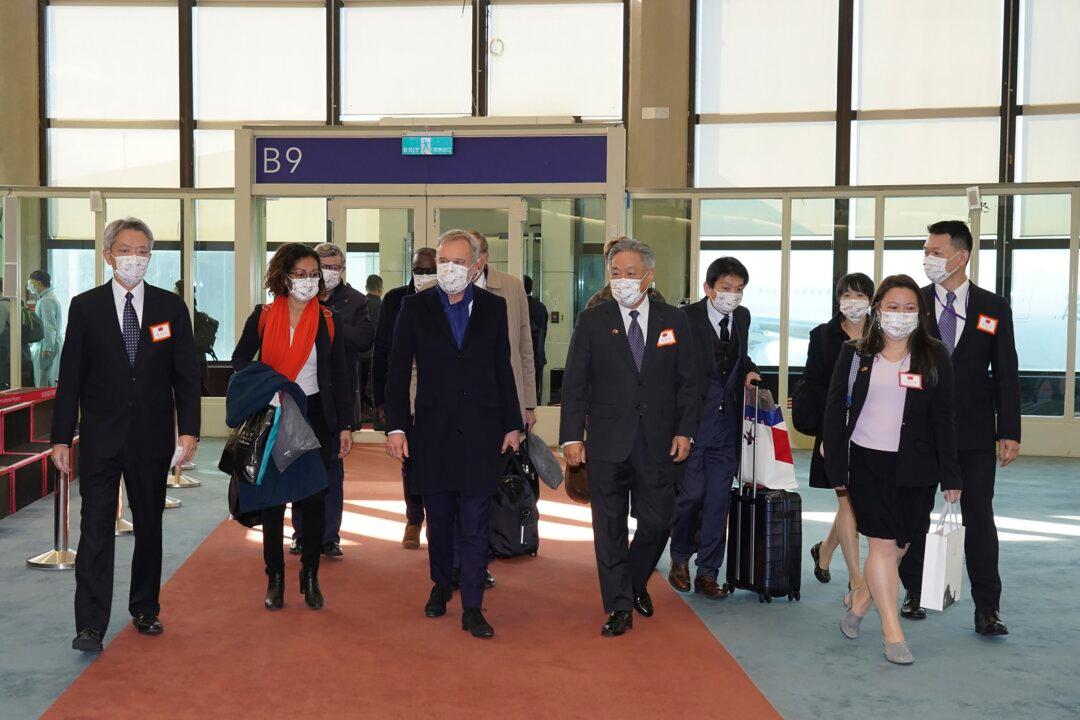TAIPEI, TAIWAN—A group of six French lawmakers arrived in Taiwan for a five-day visit on Wednesday, following a similar trip led by a group of French parliamentarians in October that the Chinese regime sought to discourage.
François de Rugy, the head of the Taiwan Friendship group in the National Assembly, the lower house of France’s Parliament, is leading the latest delegation’s visit, which will include meetings with Taiwanese President Tsai Ing-wen and other senior government officials.





